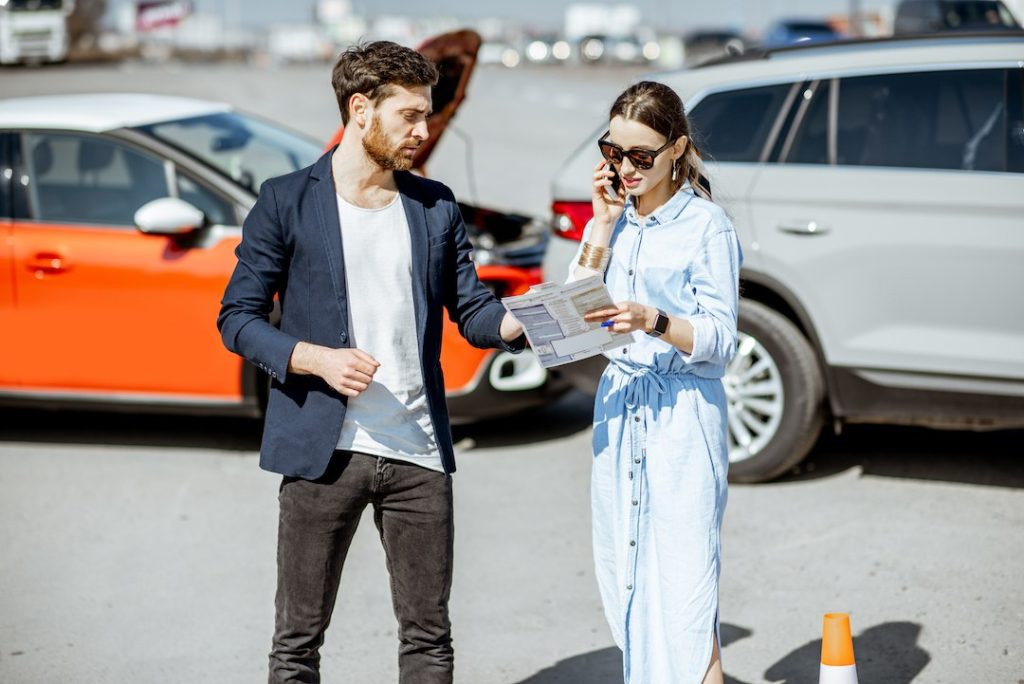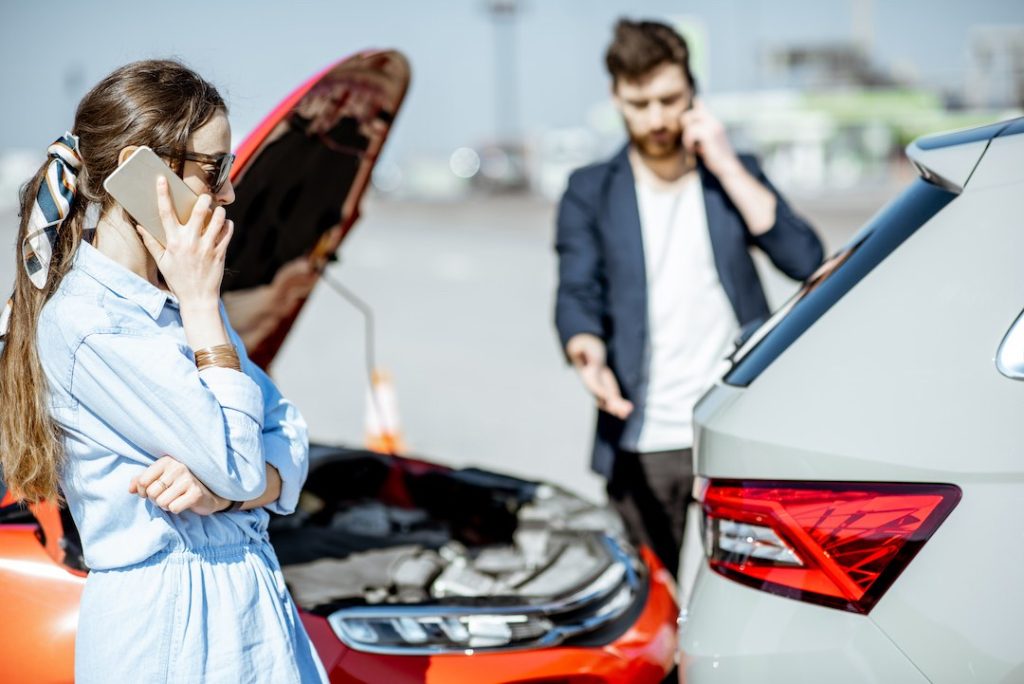Be prepared. Boy scouts will remind you. Dieticians will remind you. Your mother will remind you. For most things in life, being prepared is half the victory. Knowing what to do when a minor car accident occurs, then, is part of being prepared.
Preparation will make the situation less stressful, easier to manage, and could save you money. With that in mind, our panel beaters have put together seven things you should do after a minor car accident.
Step 1: Stop
In New Zealand, by law, you must stop after an accident, regardless of how minor you think it is. Whether you’ve hit or been hit by another vehicle, pedestrian, cyclist, scooter, bollard, wall, parking garage post, animal. Whatever it is, you are obliged to stop and check for damage and/or injuries.
Failure to do so may be considered a hit and run, and you could be charged with an offence. Therefore, if you have hit someone else’s vehicle or property, you must, by law, let the owner know as soon as possible but no later than 48 hours after the collision.
If you can’t find the owner, you must tell a police officer as quickly as possible and no later than 60 hours after the crash.
Step 2: Check that everyone is okay
This includes yourself, others in your car, people in any other vehicles involved, any cyclists or pedestrians involved. As well as other people on the road or footpath. If necessary, call emergency services right away. As a reminder, in New Zealand, the number to call is 111 for emergencies.
Though if you’re not sure of the extent of someone’s injuries, it’s always safest to err on the side of caution and call for help. Often neck pain, back pain or concussion are not immediately apparent and may become an issue a few hours after the collision.
Step 3: Turn off your vehicle and, if possible, move it from the road
Make sure you and any other drivers turn off the ignition of your vehicles. This will prevent any unexpected movement of the cars and any possible overheating if the cars are damaged. It is advisable (and legally permissible) to clear your vehicle off the road if it is blocking traffic in many instances.
The exception to this will be if there is a dispute over who is at fault or who is responsible for the collision. The position of the vehicles may help police determine this if there is a dispute over who is responsible for the crash.
The car insurance companies may also want to know. If there is a driver involved with no vehicle insurance. Responsibility for the collision will be even more critical in settling any claims and/or covering the costs of repairs.
If you are not moving the vehicles right away. It is essential to phone the police and have them come to the crash scene as soon as possible.
Step 4: Get some details
Exchange details with any other drivers involved. Even if you both agree the visible damage is minimal, always exchange details. Often a technician or panel beater will uncover damage that requires repair. (And paid for by someone or someone’s car insurance company) that you may not notice.
The details you should exchange with any other drivers involved in the accident include name, phone number, vehicle registration number (licence plate number) and insurance company name.
If an uninsured driver hits your vehicle, get their details. Ask to see their licence and note their name and driver’s licence number if possible. Additionally, make a note of the details of the car they’re driving. (Make, model, colour and registration number). Get contact details of any witnesses and get their name and ID number if a police officer attends.
According to Waka Kotahi NZ Transport Agency (NZTA), you must give your name, address and vehicle registration. (And, if it isn’t your vehicle, the name and address of the owner of the car you are driving). As soon as possible but no later than 48 hours after a crash to the owner or driver of any other vehicle that has been damaged. And/or to the owner of any property that has been damaged. If you can’t find these people, you must tell a police officer as soon as possible and no later than 60 hours after the crash.
Step 5: Take photos
These days almost everyone has a smartphone with them that they can use to take photos on the spot. Take pictures of your car and the other vehicles or property involved and of the details close up.
As well as of the entire scene to put the collision into perspective. You should also take some of the licence plates of any other vehicles involved. And of the other person’s identification or driver’s licence.
Furthermore, if they don’t have it with them or refuse to show it to you. Ask nicely if you can take a photo of their face. Use your best judgement here of what you think your insurance company or the police may want photos of. But we generally advise the more, the better. You can always delete any images you don’t need.
A word of advice here, resist the urge to post any photos or videos on social media. A car accident can be stressful when other people are involved. And you don’t need to add to that anxiety by making it a public affair. Treat any other parties involved with respect. Even if you believe they were at fault. Insurance companies also don’t like it when disputes or claims become the topic of discussion on social media.
Step 6: Call your panel beater
As you will read in many of our other articles and blog posts, we’re advocates for always having your vehicle checked after a car accident. Even if it’s just a seemingly minor nose-to-tail crash. There may be hidden damage that you cannot see.
There may also be problems with your vehicle that you’re unaware of until they become worse after a collision. It’s always better to be safe than sorry. Therefore, if you’re unsure, get in touch with our panel beaters. We can provide you with some advice over the phone initially.
Step 7: Contact your insurance company
If you have car insurance (and we strongly advocate that you do). You should call your insurance provider as soon as possible to inform them of the collision. Often, they will ask you to take your vehicle to a panel beater to have the damage assessed.
At Mt Roskill Collision Centre, we can help with this process. We work with most of the major insurance companies in New Zealand. We are very accustomed to providing them with all the information they need to evaluate your claim.
Knowing these steps to take will help reduce any panic or stress and help you feel much more prepared should you be involved in a collision. Feel free to print off a copy of these tips and keep them in your car or screenshot this blog and keep a copy on your phone. You’re always welcome to give us a call on 0800 227 762 if you’re involved in a car accident. We’re here to help!
The Mt Roskill Collision Centre promise
Our goal is to have everyone on New Zealand roads driving safely. We offer a lifetime guarantee on our car repairs from our panel beating and collision repair service centre in Mt Roskill, Auckland. Contact us online or call us on 0800 227 762 for a free quote or to book an appointment.

